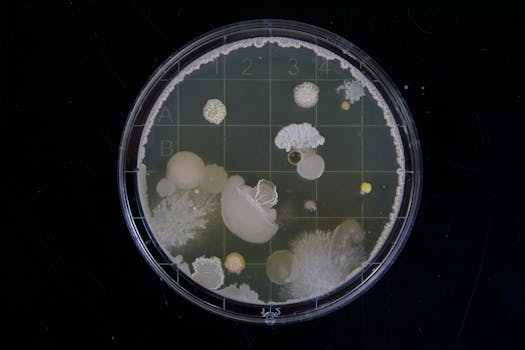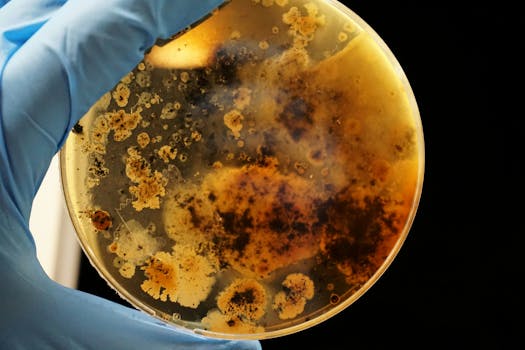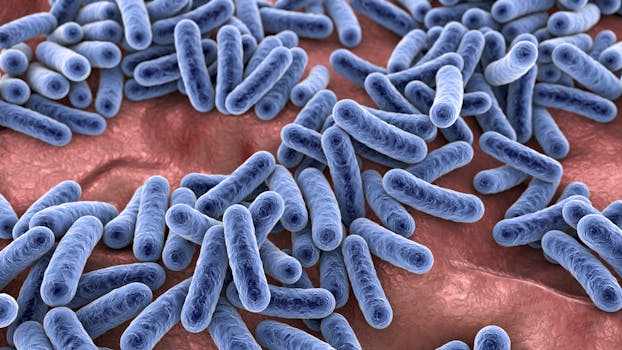Impaired oral flora
When it comes to dental care, we often talk about brushing, flossing and mouthwashes, but one crucial aspect often goes unnoticed: the oral flora. The oral flora, a complex system of bacteria, fungi and microbes, plays a central role in oral health. But what happens when this balance is disturbed? In this blog post, we look at oral flora and discover how a disrupted oral flora can affect not only your gums and teeth, but also your general well-being.

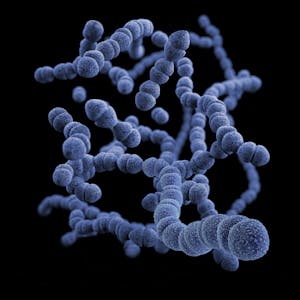
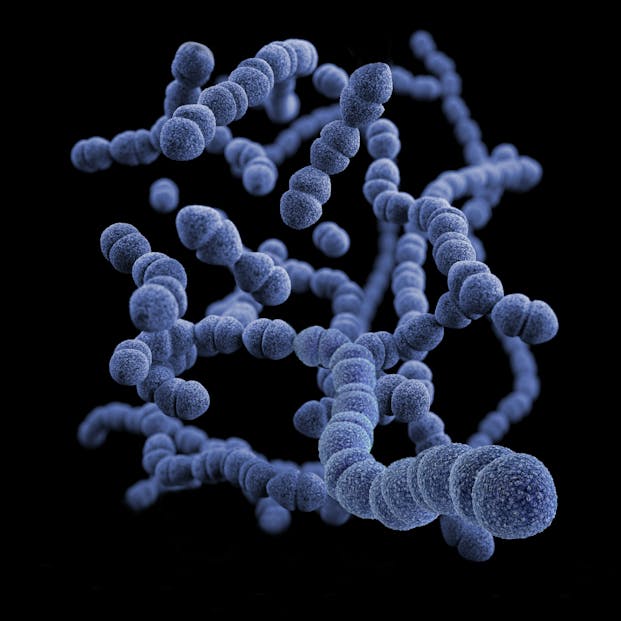
The microbiome of your mouth
Think of your mouth as a living garden where hundreds of species of bacteria, together with other microorganisms such as fungi, including Candida, form a complex and dynamic ecosystem. This ecosystem, known as the oral microbiome, is comparable to the diverse community of gut flora and plays a crucial role in maintaining your oral health. Healthy oral flora acts like a protective shield that fends off pathogens, aids digestion and protects the delicate oral mucosa. However, this balance is delicate and can easily be disrupted by a variety of factors, opening the door to various oral health problems.
Causes and consequences of disturbed oral flora
There are many causes of impaired oral flora. Poor oral hygiene, such as insufficient brushing and neglecting the spaces between teeth, creates an environment in which harmful bacteria and fungi can thrive. Excessive sugar consumption provides the ideal food for these harmful microorganisms, which can lead to an increase in plaque and ultimately to tooth decay. Smoking and the use of certain medications, including those that reduce saliva flow, can also disrupt the delicate balance of oral flora.
One bacterium that is particularly associated with oral health problems is Streptococcus mutans. This bacterium is significantly involved in the formation of dental plaque and the development of tooth decay. When harmful bacteria and fungi get out of hand, they can cause plaque and infections that can lead to gingivitis, periodontitis and even tooth loss. Bad breath and an increased susceptibility to disease are often further consequences of disturbed oral flora.
Chlorhexidine
Chlorhexidine, an antimicrobial agent that works effectively against a variety of microorganisms, is often used in the treatment of oral health problems. Whilst chlorhexidine can be helpful in combating gingivitis and reducing bacteria in the mouth, it should be used with caution. Long-term use can disrupt the delicate balance of oral flora and lead to discolouration of the teeth. It is important to coordinate the use of chlorhexidine with a dentist to ensure that it supports oral health without disrupting the balance of oral flora.
Maintaining healthy oral flora requires a balance between good oral hygiene, a balanced diet and, where appropriate, the targeted use of antimicrobials under expert guidance. By maintaining this delicate balance, you can protect your oral health and minimise the risk of tooth decay, gum disease and other problems caused by impaired oral flora.
Caries and periodontitis
Caries is one of the most common consequences of impaired oral flora. It occurs when harmful bacteria produce acids that attack the tooth enamel. Periodontitis, a serious inflammation of the periodontium, can follow if the inflammation spreads to the gums and surrounding structures. Both conditions are not only painful but can also lead to tooth loss.
Bad breath and inflammation of the gums
In addition to tooth decay and periodontitis, impaired oral flora can also lead to bad breath and gingivitis. Bad breath, often a sign of an excessive build-up of bad bacteria and tongue coating, can be a nuisance. Inflammation of the gums, also known as gingivitis, is a mild form of periodontitis and can often be reversed with good oral hygiene.
Candida in the mouth
Candida, a yeast fungus that occurs naturally in small quantities in the mouth, can get out of hand if the oral flora is imbalanced and lead to infections. Whilst Candida is harmless in a balanced microbiome, an overgrowth of this fungus can lead to symptoms such as white patches on the oral mucosa, redness and burning. This emphasises the importance of a balanced microbiome in preventing Candida overgrowth and maintaining overall oral health.
Protect yourself from bad mouth bacteria
Fortunately, there are natural remedies and proven strategies that can help you keep your oral flora in balance and protect your mouth from these harmful microorganisms.
Natural helpers: sage, camomile and tea tree oil
In addition to traditional dental care, natural remedies can also help to support healthy oral flora. Herbs such as sage and camomile have anti-inflammatory properties that can help with gum inflammation. Tea tree oil, known for its antimicrobial properties, can be used in diluted form as a natural mouthwash to fight harmful bacteria.
Probiotics: Strengthening the good bacteria
Just like in the gut, probiotics can also have positive effects in the mouth. They help to promote the balance of oral flora and keep harmful bacteria in check. Regular intake of probiotic foods or food supplements can therefore be another building block for good oral hygiene and healthy oral flora.
A holistic approach for your oral health
Effective oral hygiene goes far beyond simply brushing your teeth. It is a comprehensive regime that aims to promote healthy oral flora and minimise the risks of impaired oral flora.
At ALPINE WHITE, we believe that good oral hygiene is the key to better overall health. Our specialised treatments, from professional dental hygiene to innovative bacterial analysis and tongue cleaning, are designed to meet your individual needs and promote optimal oral health. By incorporating these treatments into your oral care routine, you can minimise the risk of impaired oral flora and maintain a healthy, bright smile.
Professional teeth cleaning at ALPINE WHITE
Our dental hygiene is a comprehensive preventive measure that is specifically designed to protect and promote your oral health. By carefully removing plaque and tartar, not only on the visible surfaces of your teeth but also in the hard-to-reach spaces between your teeth, our experts make a significant contribution to preventing tooth decay and gum disease.
The interdental spaces are often breeding grounds for bacteria and plaque that are difficult to reach with conventional interdental brushes. Our specialist dental hygienists use advanced techniques and tools to thoroughly clean these areas and thus minimise the risk of inflammation and disease.
Innovative bacterial analysis for targeted care
At ALPINE WHITE, we go one step further by offering a specialised bacterial analysis. This analysis gives us insights into the microbiome of your mouth so that we can offer customised treatment and care recommendations based on your individual needs. By understanding the specific types of bacteria in your mouth, we can develop more targeted strategies to maintain healthy oral flora. Find out more about our bacterial analysis and how it can revolutionise your oral care: ALPINE WHITE Bacterial Analysis.
Tongue cleaning: An indispensable part of oral hygiene
Tongue cleaning is an often overlooked but essential part of oral hygiene. The tongue can harbour a variety of bacteria that can lead to bad breath and other oral health problems. At ALPINE WHITE, we offer specialised tongue cleaning treatments that aim to thoroughly cleanse your tongue and remove harmful bacteria. This tongue scraper treatment complements your daily oral care routine and helps to maintain the balance of your oral flora. Learn more about the benefits of tongue cleaning and how it can become part of your oral care routine: ALPINE WHITE tongue cleaning.
Your oral flora, your responsibility
The oral flora is a complex and sensitive system that plays a central role in oral health. Impaired oral flora can lead to a variety of problems, from tooth decay and periodontitis to bad breath and gingivitis. Through good oral hygiene, the right diet and the support of natural remedies and probiotics, you can promote the balance of your oral flora and thus protect your dental health and your general well-being. Remember: your oral health is in your hands.
